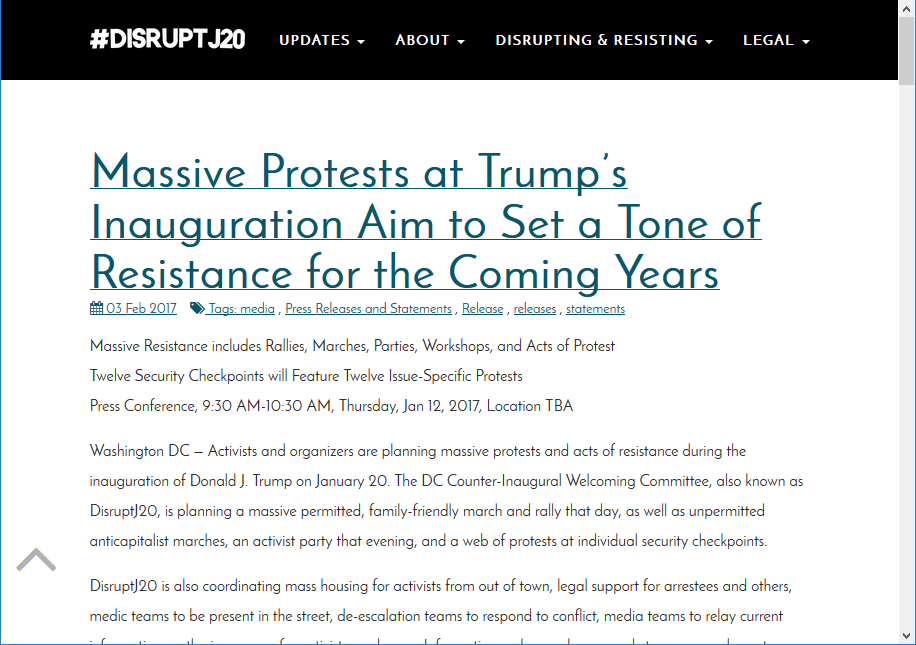A web hosting provider has revealed the US Justice Department’s efforts to obtain records about an activist website established to coordinate “mass protests to shut down the inauguration of Donald Trump”.
A DOJ warrant seeks information about visitors to a website promoting Inauguration Day protests. (Photo: Getty)
In a blog post titled, “We Fight for the Users” — but which sadly contained not a single Tron GIF — DreamHost said it was opposing a broadly-worded US federal warrant that seeks access to “all information available” about the website disruptj20.org. The website took part in planning Inauguration Day protests organised by a group called the DC Welcoming Committee, which defines itself as “a collective of experienced local activists and out-of-work gravediggers acting with national support”.
“DreamHost, like many online service providers, is approached by law enforcement regularly to provide information about customers who may be the subject of criminal investigations,” the provider wrote. “These types of requests are not uncommon; our legal department reviews and scrutinizes each request and, when necessary, rejects and challenges vague or faulty orders.”
In this case, the provider has taken issue with what its attorney, Chris Ghazarian, called a “highly untargeted demand that chills free association and the right of free speech afforded by the Constitution”. Specifically, DreamHost believes handing over all data associated with the #DisruptJ20 website would result in the government identifying visitors who are purely engaged in peaceful political speech.

Screencap: DreamHost
For instance, the warrant would appear to cover IP logs related to the site’s 1.3 million visitors in addition to “contact information, email content, and photos of thousands of people,” said DreamHost. A hearing is scheduled this Friday in Superior Court in Washington, DC.
Working closely with DreamHost, the Electronic Frontier Foundation (EFF), one of America’s leading digital rights organisations, claims the DOJ is using “unconstitutional methods” in pursuing its investigation into the January 20 protests.
The EFF further applauded DreamHost’s effort to get the DOJ to narrow the scope of its warrant — a request the DOJ ultimately refused in mid-July.
“No plausible explanation exists for a search warrant of this breadth, other than to cast a digital dragnet as broadly as possible,” said EFF attorney Mark Rumold. “But the Fourth Amendment was designed to prohibit fishing expeditions like this. Those concerns are especially relevant here, where DOJ is investigating a website that served as a hub for the planning and exercise of First Amendment-protected activities.”
The US Justice Department could not be immediately reached for comment.
